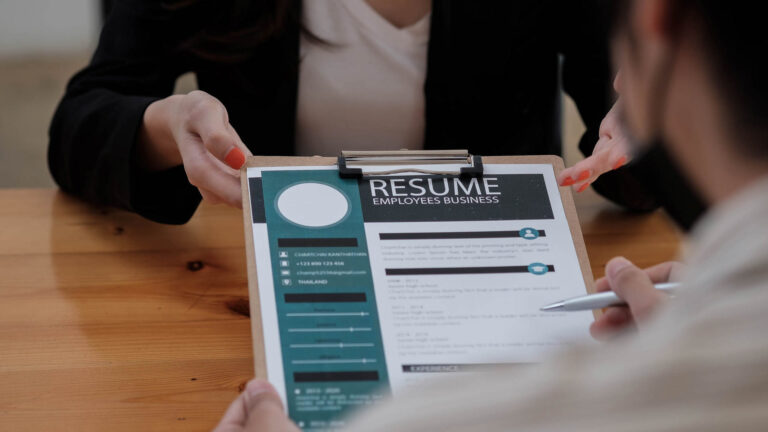As a Communication Specialist, showcasing your skills and experiences on your resume can make all the difference when it comes to landing a new job or securing a promotion. A Communication Specialist Resume is an overview of your professional background and qualifications, highlighting your ability to communicate clearly, efficiently, and effectively.
Having a well-crafted Communication Specialist Resume is crucial in today’s job market, where employers receive hundreds of resumes for every job opening they post. By creating a tailored and personalized resume that highlights your unique skills and experiences, you can differentiate yourself from the crowd and stand out to potential employers.
In this article, we will cover 20 Communication Specialist Resume Examples, providing you with inspiration and guidance for crafting your own resume. From the latest trends in resume design to the specific skills and experiences that employers are looking for, this article will cover everything you need to know to create a winning Communication Specialist Resume. So whether you’re just starting out in your career or looking to take the next step, read on to learn how to showcase your skills and experiences on your resume and land your dream job.
Format and Template
When it comes to creating your communication specialist resume, having a professional format and template is crucial. A well-designed resume not only helps you stand out from other candidates, but it also shows potential employers that you have a keen eye for detail and a commitment to professionalism.
Here are some tips for choosing an appropriate format and template for your communication specialist resume:


-
Keep it simple: A clean and minimalistic design is often the most effective. Avoid using an overly complicated or colorful template that can be distracting to the reader.
-
Consider the context: Think about the type of organization you’re applying to and the industry in which they operate. For example, a startup may appreciate a more creative approach, while a more traditional corporate environment may prefer a more conservative design.
-
Highlight your strengths: Choose a format and template that highlights your experience and skills in the best possible way. If you’re applying for a job that requires strong writing skills, choose a template that emphasizes your ability to write clear and concise copy.
With these tips in mind, here are some sample communication specialist resume templates:
-
Creative Template: This template features a bold and colorful design, making it perfect for those applying to creative agencies or startups.
-
Minimalist Template: This design is simple and clean, putting the focus on your experience and skills.


-
Traditional Template: This classic template is perfect for those applying to more traditional corporate environments.
Ultimately, the format and template you choose should complement your strengths as a communication specialist and help you stand out from other candidates in a competitive job market.
Professional Summary
In a communication specialist resume, the professional summary is a brief section that gives hiring managers an overview of your skills, experience, and career objectives. It’s a critical component of your application because it serves as your first impression and can determine whether you’ll get an interview or not. A well-written professional summary should capture the reader’s attention, highlight your strengths and differentiate you from other candidates applying for the same job.
An effective professional summary for a communication specialist should start with a short statement about your job title, years of experience and education level. Also, it should reveal your core competencies, demonstrating your ability to communicate efficiently across different channels, formats and media platforms. For instance, your summary can read:
Example 1


“Communications Specialist with 8 years of experience and a degree in Mass Communication. A digital native with a proven track record of developing and executing integrated communication campaigns, leveraging social media platforms, blogs, emails, and video. Skilled in writing persuasive content, managing stakeholders and building lasting relationships with media influencers.”
Here, the applicant mentions their experience level, education and highlights their digital communication proficiency, writing and stakeholder management abilities.
Example 2
“Strategic Communications Manager with 10 years of experience in the nonprofit sector. Recognized as a versatile communication strategist with excellent research and editing skills. Adept at crafting messaging for diverse audiences including donors, media, board members, and volunteers. Passionate about social causes and adept at using stories to engage target audiences.”
In this case, the candidate positions themselves as an experienced strategist who has a passion for social causes, and can craft compelling messages for different stakeholders.
Example 3
“Public Relations Specialist with 5 years of experience in managing corporate reputation. A results-driven professional who thrives in a fast-paced environment. Skilled in media relations, crisis communication and executing PR campaigns. Possesses excellent writing, networking, and problem-solving skills.”


This candidate presents themselves as a Public Relations specialist with significant experience in managing corporate reputations. They also demonstrate skills in media relations, crisis communication and a resilient problem solver.
The Professional Summary section of a communication specialist resume is an essential component that can differentiate top applicants from the rest. It should highlight skills, experience, and career objectives, compelling interest in the hiring manager to invite you to an interview. When crafting a Professional Summary, consider your suitability and strengths for the job, using relevant keywords and phrases, and writing it in a concise and engaging way.
Work Experience
Having relevant work experience is arguably one of the most important aspects of any resume; especially for communications specialists. It showcases a candidate’s skills, abilities, and accomplishments in relevant roles. Here are some tips to effectively showcase work experience on a resume:
- Mention only the most relevant roles you’ve had, focusing on the tasks and achievements that are applicable to the job you’re applying for.
- Use bullet points to highlight the key responsibilities and impact of each role. Be concise and specific in your descriptions.
- Use strong action verbs to make your descriptions of your work experience more memorable and impactful.
- Quantify your achievements wherever possible, such as increasing engagement on social media posts, or increasing adoption of a company’s product.
To illustrate, here are some examples of work experience descriptions for a communication specialist resume:
-
Developed and executed internal communication strategies for employees, resulting in a 30% increase in employee engagement.
-
Managed social media channels for a global consumer brand, increasing follower count by 25% and website traffic by 20%.


-
Created and coordinated the production and dissemination of a quarterly newsletter for a healthcare organization, resulting in a 40% increase in email open rates.
-
Led crisis communication efforts for a multinational corporation during a reputational crisis, resulting in a positive reputation turnaround and increased stakeholder trust.
-
Collaborated with cross-functional teams to design and implement a new company-wide brand strategy, resulting in a 15% increase in brand recognition.
By following these tips and including examples like these, communications specialists can showcase their relevant work experience and demonstrate their value to potential employers.
Skills
When it comes to writing a communications specialist resume, highlighting your relevant skills is crucial. Employers want to see that you possess the skills necessary to excel in the role they’re offering. In this section, we’ll discuss the importance of relevant skills, tips for effectively highlighting them, and provide some examples of communication specialist skills to include on your resume.
Importance of Relevant Skills
As a communications specialist, your job is to effectively convey your organization’s messages to your target audience. This requires a unique set of skills that are crucial to the job’s success. Including relevant skills on your resume will not only show potential employers that you have what it takes to thrive in the role, but it will also make you stand out from other candidates.


Some skills that are particularly relevant for communications specialists include:
- Excellent written and verbal communication skills
- Strong storytelling abilities
- Knowledge of various communication mediums (e.g., social media, email, press releases)
- Ability to work under tight deadlines and prioritize tasks
- Interpersonal skills and the ability to collaborate effectively with team members and external stakeholders
- Experience with marketing and branding
Tips for Highlighting Skills Effectively
Once you’ve identified the most relevant skills for your communications specialist resume, it’s important to highlight them effectively. Some tips for doing this include:
- Incorporate them into your resume’s objective statement or summary section.
- Mention them right away in the skills section of your resume.
- Use bullet points to clearly and concisely describe each skill.
- Use action words to make your skills stand out (e.g., “outstanding oral presentation skills”).
- Tailor the skills you highlight to the specific job you’re applying for.
Examples of Skills for a Communication Specialist Resume
Here are some examples of skills you might include on your communications specialist resume:
- Exceptional writing and editing abilities
- Proficient with social media platforms
- Experience with public relations and media outreach
- Ability to craft compelling narratives for different audiences
- Proficient in Microsoft Office Suite
- Experience with content creation and management systems
- Excellent project management skills and ability to prioritize multiple projects at once
- Experience creating and executing successful marketing campaigns
By including these skills on your resume and highlighting them effectively, you’ll show potential employers that you have the relevant experience and abilities required for a communications specialist role.
Education and Certification
In the highly competitive field of communication, education and certification can make a significant difference in your career growth and earning potential. Employers often look for candidates with relevant academic achievements and industry certifications to demonstrate their dedication and expertise. Therefore, highlighting your education and certification on your communication specialist resume is crucial.


Importance of education and certification
Having a college degree in communication or a related field shows that you have acquired a solid foundation in the core principles of effective communication. You can convey ideas, data, and information in a way that can be understood by a wide range of audiences. In addition, certifications, such as the Certified Public Relations Professional or the Accredited in Public Relations, are widely recognized credentials that validate your communication skills and knowledge.
Tips for showcasing education and certification effectively
To make your education and certification stand out on your resume, consider the following tips:
-
List your education and certification under a separate section, usually placed right after your work experience or summary/ objective statement.
-
Mention your degree or certification title, institution, location, and date of graduation, in reverse chronological order.
-
Highlight specific courses or achievements that showcase your communication skills, such as public speaking, journalism, media management, crisis communication, or digital marketing.
-
Use action verbs such as “earned,” “awarded,” or “completed,” to describe your education and certification.
Examples of education and certification for a communication specialist resume
Here are some education and certification examples that could enhance your resume as a communication specialist:
Bachelor’s degree in Communication
- Smith College, Northampton, MA
- Graduated in May 2015
- Completed courses in public speaking, journalism, media ethics, digital communication, and organizational communication.
Accredited in Public Relations (APR)
- Public Relations Society of America (PRSA), New York, NY
- Earned in October 2018
- Demonstrated proficiency in strategic planning, reputation management, crisis communication, and media relations.
Master’s degree in Mass Communication
- University of Florida, Gainesville, FL
- Graduated in December 2019
- Specialized in digital media, social media analytics, visual communication, and media law.
Certified Content Marketing Specialist
- Digital Marketing Institute, Dublin, Ireland
- Completed in August 2020
- Developed skills in content strategy, SEO, social media marketing, and online branding.
By showcasing your education and certification effectively, you can demonstrate your expertise and stand out as a qualified candidate in the competitive communication job market.
Accomplishments
As a communication specialist, showcasing your accomplishments can be the key differentiator between a good resume and a great one. A well-articulated list of your accomplishments demonstrates your value proposition as a skilled professional in this field. Here are some tips to demonstrate accomplishments effectively:
Importance of showcasing accomplishments
Recruiters and hiring managers want to see evidence of your achievements, skills, and contributions. Without clear evidence, they cannot determine how you can benefit their organization. This evidence is often highlighted in the form of accomplishments, whether they be increased revenue, improved customer satisfaction, or successful campaigns.
Tips for demonstrating accomplishments effectively
-
Quantify your achievements – Use numbers whenever possible to convey the scope and impact of your work. For example, instead of saying “managed a successful social media campaign,” you could say “managed a successful social media campaign that increased Facebook followers by 40% and engagement by 25%.”
-
Use action verbs – Use action verbs to emphasize what you’ve accomplished. Verbs such as “increased,” “reduced,” “implemented,” and “launched” help to convey a sense of accomplishment and action.
-
Tailor your accomplishments to the job you’re applying for – Highlight accomplishments that are relevant to the job you’re applying for. Use the job description as a guide to highlight experiences and skills that would make you a strong candidate.
Examples of accomplishments for a communication specialist resume
- Developed and executed a successful PR campaign that generated over 50 media placements in high-profile publications
- Increased website traffic by 65% by implementing SEO best practices and conducting regular content updates
- Successfully managed a crisis communication strategy that helped to maintain brand reputation during a negative news cycle
- Led the implementation of a new social media strategy that resulted in a 35% increase in engagement across all platforms
- Increased email open rates by 25% by improving email marketing campaign segmentation and personalization
These are just a few examples of how communication specialists can showcase their accomplishments on their resumes. Remember to focus on quantifiable achievements and action-oriented language that demonstrates your expertise and value to potential employers.
Action Verbs
Action verbs play a crucial role in making your communication specialist resume stand out. They help demonstrate your competency and convey your achievements and accomplishments in a compelling manner. Here are some important things to keep in mind when using action verbs:
Importance of using action verbs
Using action verbs in your resume is essential because they:
-
Enhance readability: Action verbs make your resume more dynamic and engaging to read. They also help recruiters and hiring managers quickly understand your experience and accomplishments.
-
Highlight your achievements: Action verbs draw attention to your accomplishments and convey a sense of achievement, rather than sounding passive or generic.
-
Set you apart: Using action verbs helps your resume stand out from the crowd. They showcase your skills and accomplishments in a unique and impressive way.
Tips for using action verbs effectively
To use action verbs effectively in your resume, consider these tips:
-
Use industry-specific action verbs: Use action verbs that reflect the skills and experience relevant to your industry. For example, if you’re a communication specialist, use action verbs that highlight your expertise in areas such as writing, editing, public relations, or social media.
-
Quantify your achievements: Use action verbs that show the impact of your work. For example, instead of using a generic verb like “managed,” use a verb like “oversaw,” “coordinated,” or “spearheaded” to show the scale and scope of your work.
-
Vary your verbs: Don’t use the same action verbs repeatedly throughout your resume. Use a variety of verbs to keep your language fresh and engaging.
Examples of action verbs for a communication specialist resume
Here are some action verbs that a communication specialist can use to effectively demonstrate their skills and accomplishments:
- Created compelling copy for press releases, brochures, and marketing materials
- Developed and implemented comprehensive social media campaigns
- Led a team of writers, editors, and graphic designers to produce high-quality content
- Increased website traffic by 25% through search engine optimization strategies
- Maintained positive relationships with media outlets and stakeholders
- Managed crisis communications for high-profile events
- Conducted media relations outreach and secured high-profile media coverage
- Built and maintained a strong brand reputation through effective communication strategies
By using action verbs effectively in your communication specialist resume, you can showcase your expertise and accomplishments in a powerful way that catches the attention of potential employers. Remember to keep it relevant, quantify your achievements, and vary your verbs to create a compelling resume that stands out from the rest.
Keywords
As a communication specialist, using the right keywords in your resume is essential to catching the attention of recruiters and landing your dream job.
Importance of Using Keywords
Keywords are the particular words and phrases that describe your skills, experience, and qualifications as a communication specialist. They can make or break your chances of getting noticed in today’s highly competitive job market. By using the appropriate keywords, you demonstrate to recruiters that you possess the necessary skills and experience, and increase your chances of passing through the automated applicant tracking systems.
Tips for Finding and Using Keywords Effectively
Here are some tips for identifying and using the right keywords in your communication specialist resume:
-
Start with the job listing. Look at the job posting and highlight the keywords used in the job description. These are the same keywords that the hiring company is using to find the ideal candidate, and it’s imperative that you include them in your resume.
-
Use specific keywords. Avoid using vague words and stick to using specific and descriptive keywords to communicate your skills and experience. This helps you stand out from the rest of the applicants who used generic and unoriginal language.
-
Sprinkle keywords throughout your resume. Rather than stuffing your resume with numerous keywords, try to use them naturally and organically throughout your document.
-
Use variations of keywords. Recruiters may use different words for the same concept or skill. For example, if you see communication skills mentioned in the job posting, also include keywords such as written communication, verbal communication, or interpersonal skills.
Examples of Keywords for a Communication Specialist Resume
Here are some examples of keywords that you can include in your communication specialist resume:
- Communication strategy
- Content creation and management
- Social media management
- Public speaking
- Copywriting
- Storytelling
- Crisis communication
- Brand messaging
- Marketing communications
- Digital marketing
Using these keywords can help you demonstrate your expertise in various communication-related skills and increase your chances of getting shortlisted for an interview.
Optimizing your communication specialist resume with keywords that reflect your skills and experience will help you get noticed by recruiters and land your dream job. Use the tips provided above, and do not underestimate the significance of keywords in your job hunt.
Common Mistakes
When it comes to writing a communication specialist resume, there are a few common mistakes that can hinder your chances of landing the job. Here are some tips to avoid these mistakes and make your resume stand out.
Mistake #1: Including Irrelevant Information
Many communication specialists make the mistake of including irrelevant information in their resumes. This can include personal details, such as age, religious affiliation, or marital status. It can also include previous work experience that is not related to the position you are applying for.
To avoid this mistake, focus on including information that is relevant to the job you are applying for. Highlight your relevant skills, experience, and achievements. Keep it concise and to the point.
Mistake #2: Using Generic Language
Using generic language in your resume can make you seem unremarkable and is a common mistake made by many communication specialists. Buzzwords and overused phrases such as “team player” or “detail-oriented” are not going to impress a potential employer.
To stand out from the competition, use specific examples and metrics to highlight your achievements. Use active verbs to describe your experience and focus on how you made a difference in your previous roles.
Mistake #3: Not Tailoring Your Resume to the Job
Each job that you apply for may require different skills and experience. One of the biggest mistakes that communication specialists make is not tailoring their resume to the job they are applying for.
To avoid this mistake, start by carefully reading the job description and requirements. Then, adjust your resume to highlight the skills and experience that match what the employer is looking for.
Mistake #4: Poor Formatting
One of the most important aspects of a resume is its formatting. Poor formatting can make it difficult for the employer to read and understand your resume. This includes using a font that is too small, not using headings to separate sections, or using too much text.
To make your resume easy to read and stand out, use a clean and simple format. Use headings and bullet points to make it easy to scan. Choose a font that is easy to read and use a reasonable font size.
When writing your communication specialist resume, avoid including irrelevant information, use specific language, tailor your resume to the job, and use a clean and simple format. By following these tips, you will increase your chances of landing the job you want.
Final Check
When it comes to crafting the perfect resume, even the most seasoned professional can benefit from a final check before submitting. So, it’s essential to perform a double-check to make sure all of the details are correct and nothing critical has been overlooked.
Here are a few tips to consider when performing a final check on your resume:
-
Take a Break: Once you’ve completed your resume, take a break before you tackle the final proofread. Even a short break of ten or fifteen minutes can help you approach your work with a fresher perspective.
-
Read and Re-read: Reading your resume slowly and carefully is the key to success. Pay attention to small details, such as spelling, punctuation, and grammar.
-
Edit in Stages: It’s essential to tackle your final checked in stages. Once you’ve checked the spelling and grammar, you need to ensure that the formatting is consistent, logical, and appealing.
-
Get a Second Opinion: Consider having someone else look over your resume with fresh eyes. Their input can provide crucial feedback regarding the clarity and strength of your resume.
Here is a checklist for final checks on your resume:
- Spell check
- Grammar check
- Consistent punctuation
- All sentences and phrases make sense
- Consistent formatting throughout the document, including font size, bullets, and bolding
- Consistent use of past and present tenses
- Accurate references and work history
- Appropriate use of industry jargon and keywords
- Contact information on the first page
Performing a final check is an essential step in ensuring that your resume is error-free and highly impactful. Taking the time to proofread, edit, and get a second opinion can make a significant difference in the success of your job search.
Related Articles
- Assistant Preschool Teacher Resume Examples & Templates 2023
- Engineering Resume: Top 40 Templates For a Dream Job
- The 2023 Chef Resume Guide: Examples & Writing Tips
- Mastering the Video Zoom Interview: 8 Essential Tips
- Including Volunteer Experience on Your Resume in 2023








